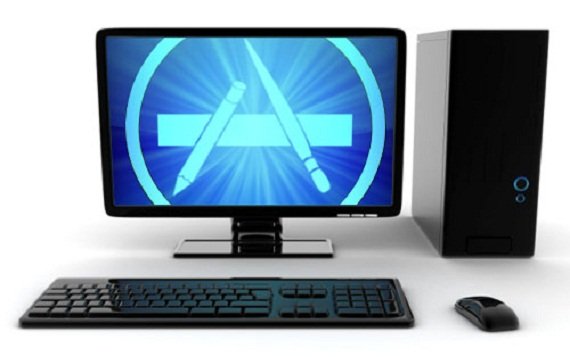

This just in: Apple products are very popular. Shocking, we know! Apple announced Monday morning that its horde of crazed fans have downloaded over 100 million personal computing apps from the Mac App Store, since the store’s January 2011 opening.
When the Mac App Store opened last January, it had about 1,000 apps available for downloading, a number which has swelled to an estimated 10,000 live apps.
But while desktop computing apps are clearly surging in popularity, they still don’t hold a candle to mobile apps. Also released Monday was a statistic touting over 500, 000 mobile applications available in the mobile-centric App Store.
Just to be clear: The “Mac App Store” sells desktop computing apps, while the “App Store” sells mobile apps. However brilliant the folks over at Apple might be, they get negative 50 points for originality, naming their desktop computing app store almost the exact same thing as their mobile app store.
Apple no doubt helped along this newest statistic regarding desktop apps, when in July 2011 they released the newest iteration of the iOS exclusive on the Mac App Store. But the Mac OS X Lion was released soon thereafter via a USB drive.
But the bigger the Mac App Store has become, the greater the risk for infiltration of Malware. Apple announced on its Developers blog last November that, starting in 2012, all apps submitted for sale at the Mac App Store will have to be “sandboxed.” This is a safety feature that restricts the access to system components that a given app may have.
The company indicated that the “vast majority” of apps are free from malware. But as the saying goes, it only takes one bad Apple to ruin the bunch. (See what I did there?)
Apple released no information as what percentage of desktop computing apps are free, versus those that cost to download. However, the company was quick to point out that Mac app developers determine their own prices, keep 70 percent of the sales revenue, “and do not have to pay hosting, marketing or credit card fees.”
Apple customers download over one billion mobile and desktop comuting apps per month.



















